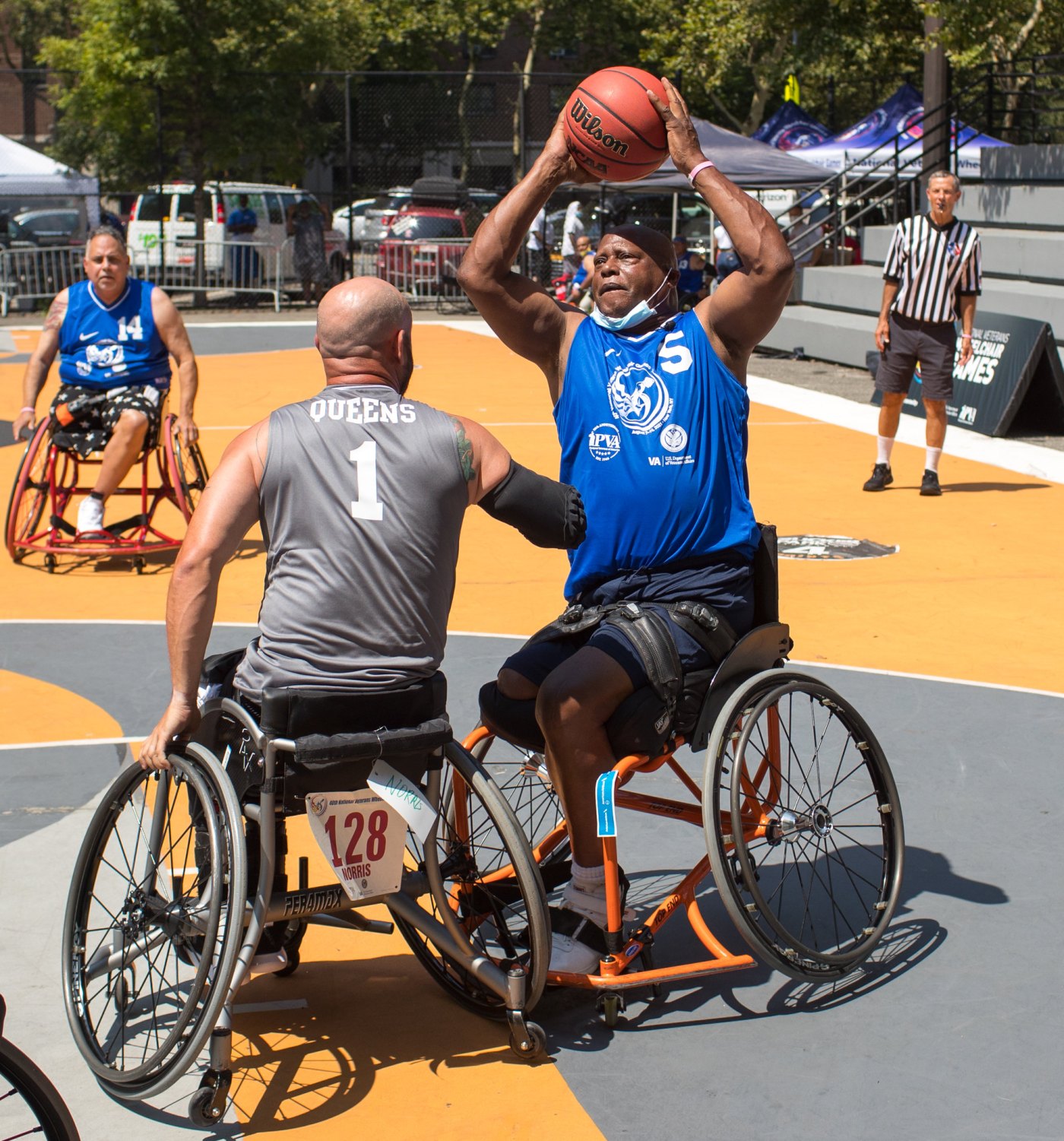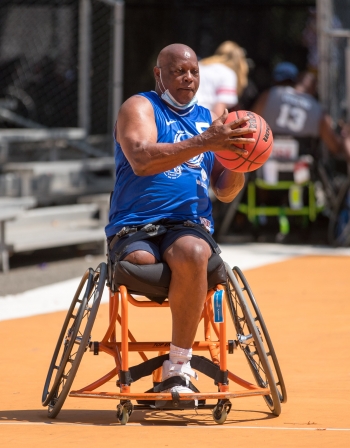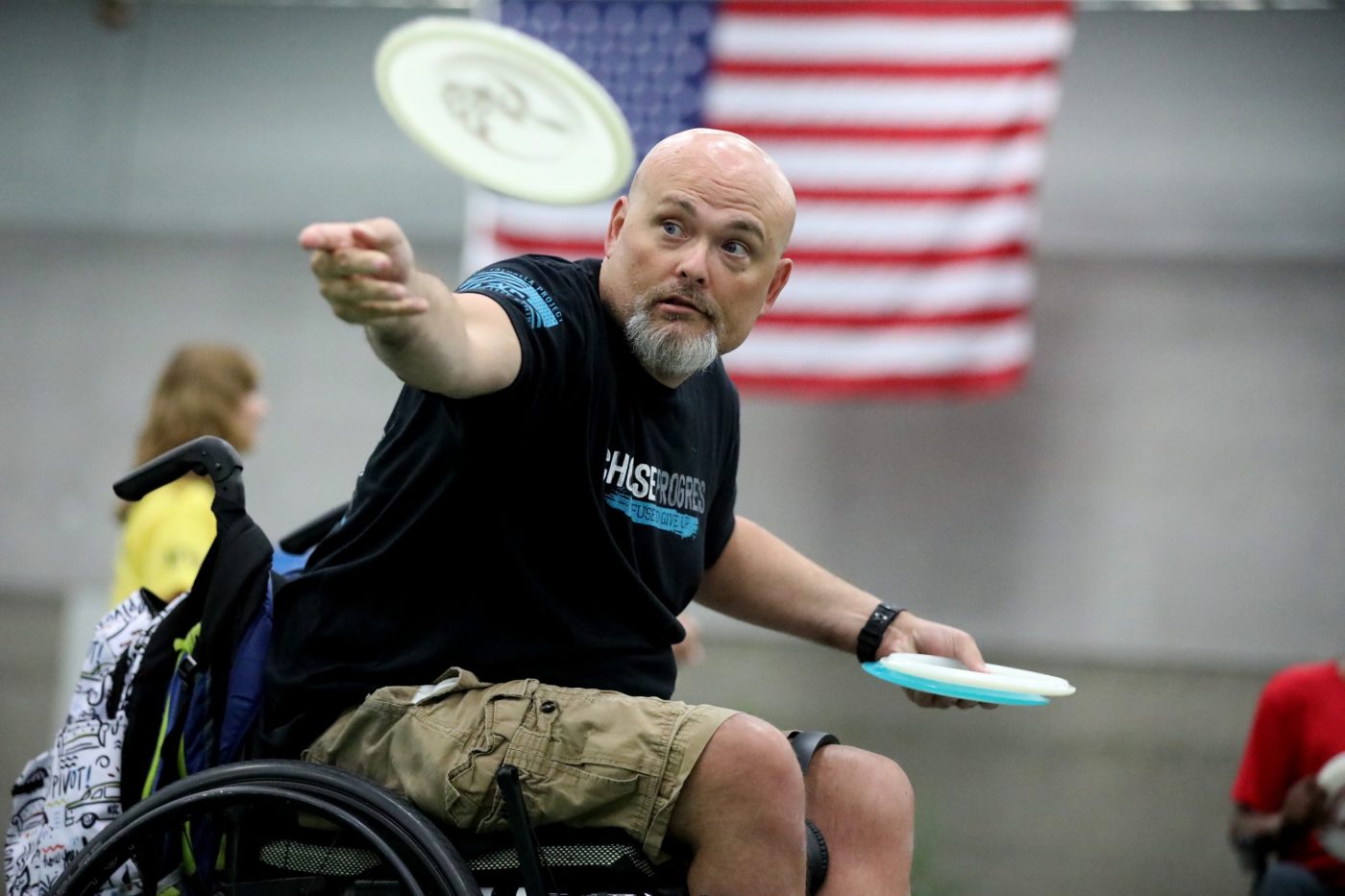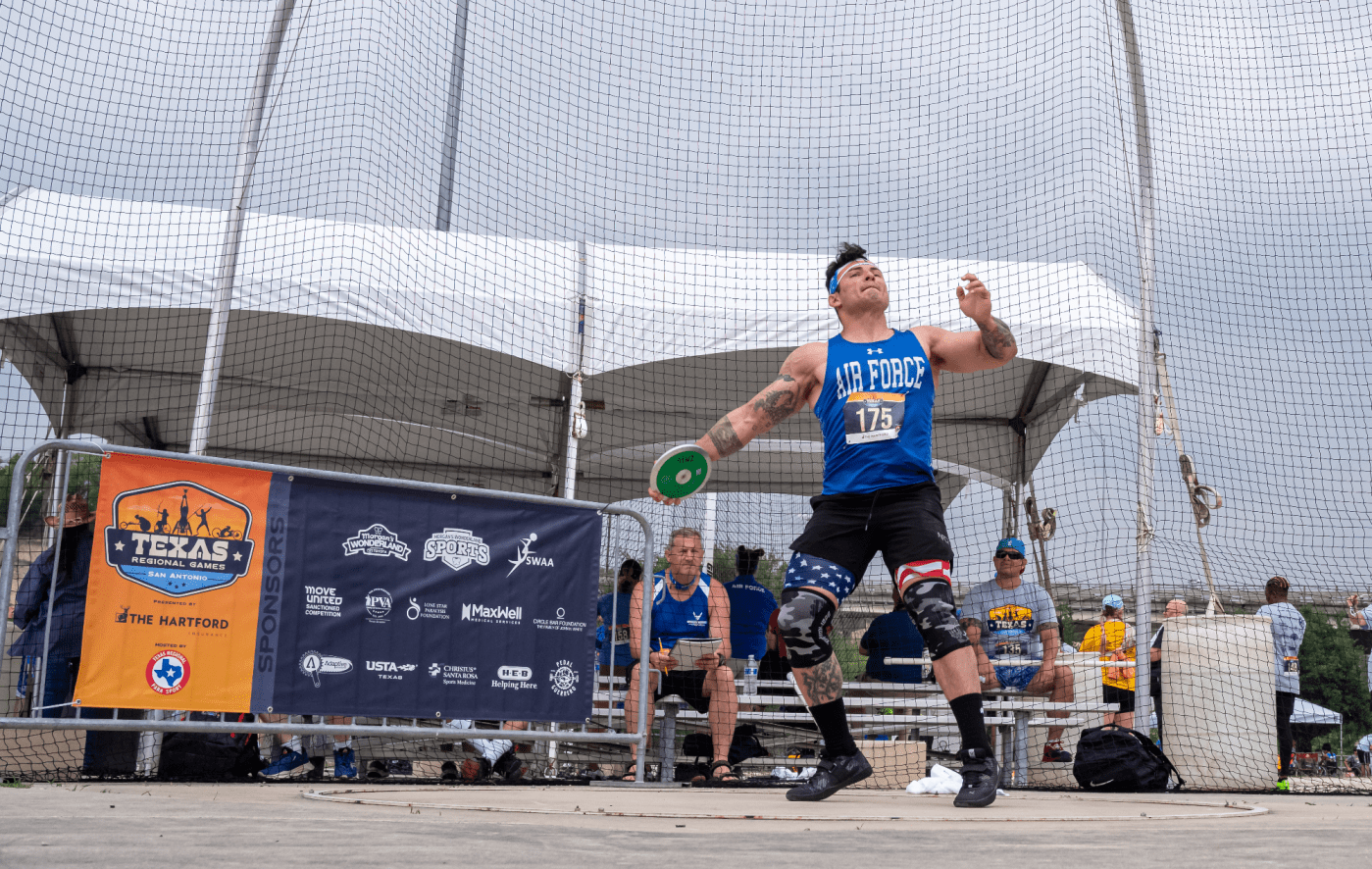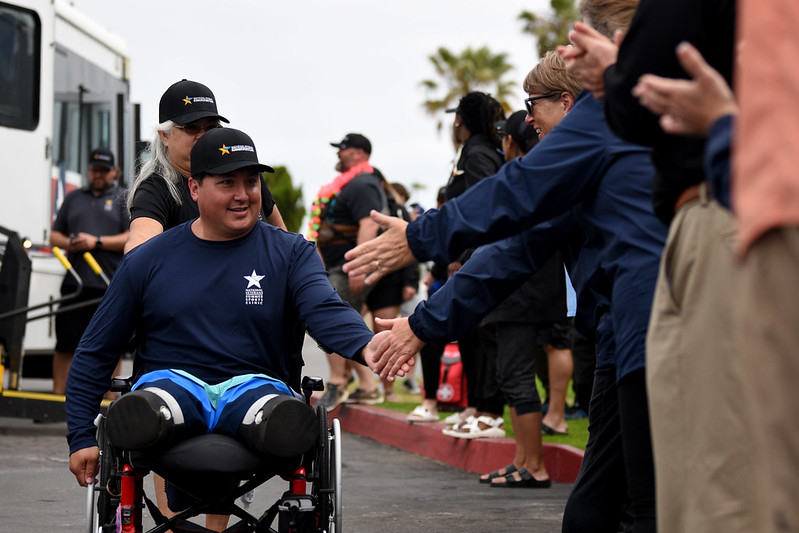Roy Wilkins was a football and basketball star at his North Carolina high school and competed in the same two sports at Clemson University, a big-time Division I program in South Carolina. Playing defensive back, he contributed to Clemson’s 1981 football team that finished 12-0 and won the national championship.
Then, in an instant, Wilkins lost his athletic superiority – or so he thought. Serving as a command sergeant major in the Army’s special forces. Wilkins was riding in an armored vehicle that went over a roadside bomb in Afghanistan in November 2004.
Two months later, he emerged from a coma with his right leg amputated above the knee.
“The first thought that went through my mind is that I’m half a person and that all of my skills are gone,” he said. “You feel like you’ve left society. You can’t go out and do what you used to do with your spouse and family. Your self-esteem goes down.
`These games mean so much to me’
“A whole lot of Vets, when something like that happens to them, they want to give up,” he added. “But I had to fight because God gives you a way of accomplishing things and keeps you pushing. God shows you how to overcome your fears because he puts [everything] right in front of you. That’s why these games mean so much to me because I know how to keep pushing.”
Wilkins was referring to the National Veterans Wheelchair Games, which wrapped up last Saturday after a week of adaptive sports for disabled Veterans in New York City. Competing in the wheelchair games for the 13th time, he took home a gold medal in weightlifting, bench pressing 180 pounds, and a bronze in basketball. He also competed in softball.
VA and Paralyzed Veterans of America co-presented the games, which were hosted by the VA NY Harbor Healthcare System. They showcased the preventive and therapeutic value of sports and fitness and supported VA’s comprehensive recreation and rehabilitation therapy programs.
Veteran also served in Vietnam
Wilkins is not only a post-9/11 Veteran. Drafted into the Army at age 17, he went to Vietnam toward the end of the war in 1973 and performed what he called “cleanup duty” in Saigon.
Following the war, he remained in the Army Reserve. In 2003, he was stationed at Dobbins Air Reserve Base in Atlanta when word came that special forces needed to report to Fort Bragg in North Carolina and prepare for deployment. He took part in combat operations in Iraq before transitioning to the Afghan city of Kandahar.
After being seriously wounded, Wilkins was treated at Ramstein Air Base in Germany and Walter Reed National Military Medical Center in Maryland, before making his way to the VA medical center in Salisbury, North Carolina. There, staff members learned of his athletic interests and told him about a wheelchair basketball team in nearby Winston-Salem.
`Then I got good at it’
“I went up there and practiced,” he said of his basketball start. “I got in the chair. The first time I touched the ball, everything went haywire. I didn’t know how to roll the chair or maneuver around the rim or anything like that. Then I got good at it. It took me about a year.”
Through the Salisbury VA, Wilkins also learned of the National Veterans Wheelchair Games. He enjoys the sense of friendship and fellowship with other disabled Veterans that the games foster. He also participates in PGA Hope (Helping Our Patriots Everywhere), which introduces golf to Veterans with disabilities to enhance their physical, mental, social, and emotional well-being.
At age 66, Wilkins currently lives in Clemmons, North Carolina.
“Everything is good,” he said. “I’m proud of what I accomplished this year at the wheelchair games.”
Topics in this story
More Stories
Veterans and volunteers interested in registering online for the 43rd National Veterans Wheelchair Games (NVWG) can do so now through April 5, 2024.
Last year, Move United hosted 26 adaptive sports competitions in 22 states for 1,537 individual athletes. This year, that number is increasing to 35 events in 24 states for even more Veteran athletes.
Registration for the National Veterans Summer Sports Clinic (NVSSC) opens on Dec. 1, 2023, and runs through March 1, 2024. The 2024 NVSSC will take place August 25-30 in San Diego, California, offering an extended opportunity for Veterans to partake in adaptive sports.

